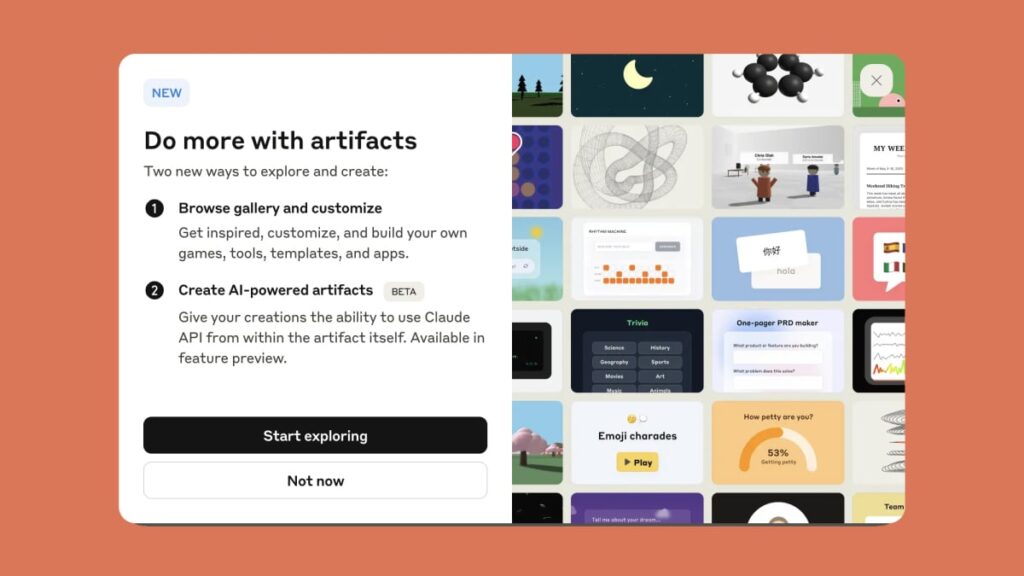
Anthropic’s Claude AI has introduced a groundbreaking feature that allows users to create and share AI-powered apps without any coding knowledge. This innovative tool, launched last year as part of the Artifacts feature, has now been significantly upgraded to enable even more sophisticated app creation through a process dubbed “vibe coding.”
David Nield, a seasoned technology journalist from Manchester, UK, tested this new feature and shared his insights. The upgraded tool is available to all users, regardless of their subscription status, and allows for the creation of apps by simply describing them in natural language. When shared, these apps utilize the recipient’s Claude usage allowance, not the creator’s.
The Evolution of Claude AI’s Artifacts
The initial version of Artifacts allowed users to generate real-time results from their conversations with Claude AI, such as diagrams and code snippets. The latest update takes this a step further by embedding Claude AI’s intelligence directly into the apps created. Users can now develop applications like flashcard generators, where the AI personalizes content based on user input.
To access this feature, users must enable it via their account settings. Once activated, they can explore a variety of existing apps, customize them, or start from scratch. Categories such as Games, Productivity tools, and Creative projects are available, providing a broad canvas for creativity.
Creating an App: A Personal Experience
David Nield, who hadn’t engaged in coding since his high school days, decided to test the capabilities of this new tool. He aimed to create a quiz app that could generate questions on any topic with adjustable difficulty levels. Remarkably, he was able to articulate his requirements using natural language, and Claude AI delivered a functional app within minutes.
Despite some limitations in the AI’s question generation, the overall experience was impressive. Nield noted that while the app’s functionality met his expectations, the AI’s understanding of question difficulty needed refinement. This highlights an area where AI models continue to evolve.
Challenges and Insights
Nield encountered some challenges, particularly with a “suggested topics” feature that required multiple iterations to perfect. This experience underscores the current limitations of AI interfaces, which can sometimes be opaque. However, the ability to see real-time code adjustments and receive explanations for changes was a valuable learning experience.
“It’s cool to see an app being rebuilt in real time, and the AI bot then explains the changes that have been made and why.” – David Nield
Implications for the Future of App Development
This development in Claude AI represents a significant shift towards democratizing app development. By removing the barrier of coding knowledge, it opens up opportunities for a wider audience to engage in software creation. This tool is particularly suited for small-scale projects and could be invaluable for individuals looking to develop custom productivity tools.
As AI continues to advance, the potential for more complex applications grows. However, as Nield’s experience shows, there is still room for improvement in AI’s understanding and execution of nuanced tasks. The journey towards fully autonomous app creation is ongoing, but tools like Claude AI’s Artifacts are paving the way.
Looking ahead, the evolution of such technologies will likely lead to more intuitive and capable AI systems, further bridging the gap between human creativity and machine execution. For now, Claude AI offers a fascinating glimpse into the future of app development, where anyone can bring their ideas to life with minimal technical expertise.






